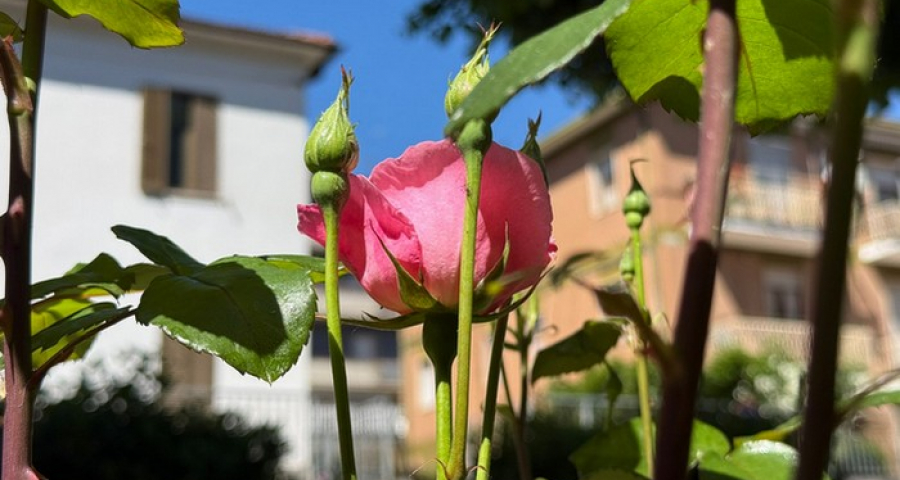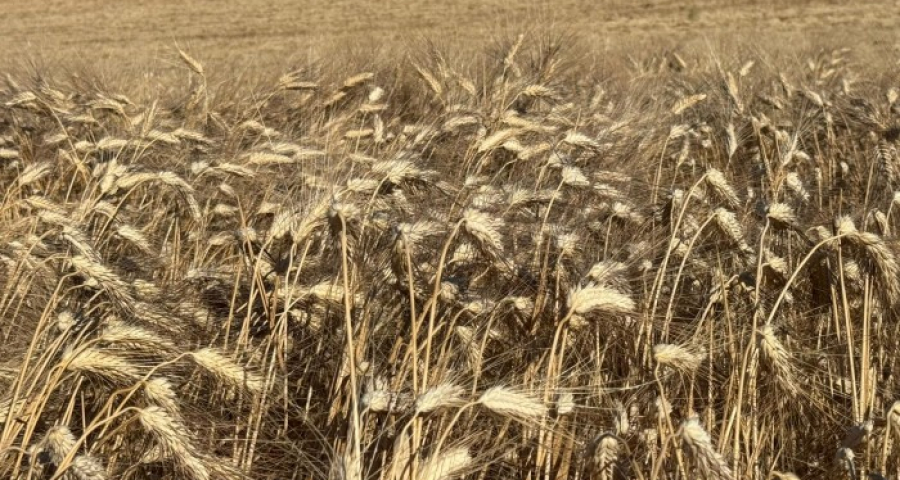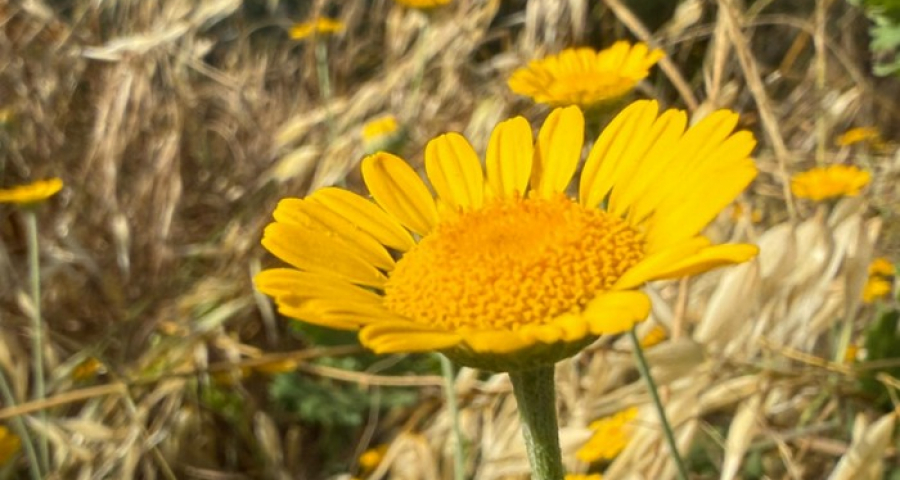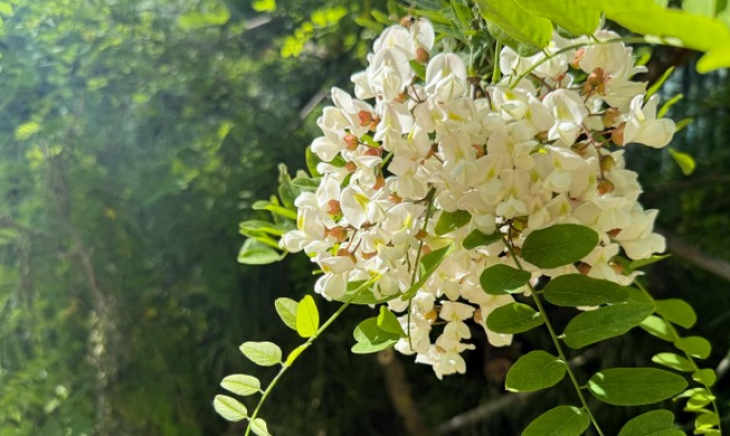Economy of Joy 7/ The Sabbath of the Jubilee helps us understand when we are becoming our own pharaohs. To learn how to let all our beauty blossom
by Luigino Bruni
published in Avvenire on June 3, 2025
The sabbatical culture, which is the foundation of the Jubilee, contains a very important anthropological message because it touches on elements that are crucial for the flourishing of individuals and communities. This is because the Sabbath, and therefore the sabbatical year, is intertwined with that deep underground layer of the Bible that is the tradition of wisdom. Without wisdom, the Sabbath cannot be understood, and biblical wisdom cannot live and mature without understanding the Sabbath, in a wonderful reciprocity. Wisdom is one of the most tenacious golden threads of the Bible. That spirit which manifested itself in Greece as sophia and philo-sophia, more or less at the same time, between Egypt and the Fertile Crescent, became wisdom, which reached great heights in the biblical texts. Philosophy originates from wonder at a world that could not be but is; wisdom, on the other hand, arises from the discovery of a reality deeper than that which is revealed to the senses, and which contains different words that teach us the craft of living. In wisdom, too, man marvels, but his first and fundamental wonder arises from the unveiling of another world. It includes the wisdom inscribed in the times and moments of nature, in recognizing a bird's nest, in knowing how to repair a plow or a motorcycle with one's hands, in learning ‘how much salt is enough’. It is an upward movement, low as the earth, humble as humus, popular, teaching life by remaining close to the ground and there, on some different day, sensing a more intense fragrance, that of life coinciding with the smell of God and his spirits. The biblical man is a dreamer of a different Adam because he was dreamed by a different God.
This wisdom is the breath that guided, together with the spirit, the hand of the writers of many biblical pages. One of these can be found in the Books of Kings, particularly in the stories about Solomon, son of King David. The parable of his reign and his life can only be understood in the light of biblical wisdom. God had given Solomon wisdom as an abundant response to what he had asked for at the beginning of his reign: “God gave Solomon wisdom and understanding beyond measure... He was wiser than all men” (1 Kings 5:9-11). Because of his wisdom, “Solomon ruled over all the kingdoms” (1 Kings 5:1). The Books of Kings begin by showing us Solomon at the height of his splendor and glory (1 Kings 4:20).
However, as we continue reading, we realize that the peak of his success coincided with the beginning of Solomon's decline. In fact, on another day, that wise king lost his wisdom, the great talent of his life: “When Solomon was old... his heart was not wholly true to the Lord his God... Solomon did evil in the sight of the Lord and did not follow the Lord completely” (1 Kings 11:4-6).
The Bible does not tell us why the moral decline of its wisest king began. Perhaps it is silent in order to give us an important and universal message: many wise people lose their way without realizing it, leaving the right path while thinking, for many miles, that they are still walking on the right road. If we then read these chapters on Solomon's decline in the light of wisdom and the Sabbath, an important clue to that decline may emerge—though not the only one. We sense that the decline perhaps began when Solomon decided to complete his masterpiece, the temple in Jerusalem: “Solomon began to build the temple and completed it” (1 Kings 6:14). And this is where the culture of jubilee and therefore of the Sabbath that underpins it comes into play. Incompleteness and imperfection are fundamental dimensions of biblical humanism. Moses, after freeing the people from Egypt, his greatest work, died without reaching the Promised Land. The patriarchs, David, are imperfect men, as presented in the Bible, as are the matriarchs and many women in the Bible. They are wonderful, amazing, because they are imperfect, full of flaws, mistakes, and limitations. Biblical holiness is different from Catholic holiness because it is perfection in imperfection.
And here we come to ourselves. When one day we discover what appears to be our greatest task, the masterpiece of our existence, along with this fantastic discovery-revelation, the conviction also arises and grows that the flowering of our life, its fulfillment, consists in carrying out that task, that our happiness lies in the fulfillment of that vocation. And so, from that moment on, we direct all our greatest and most beautiful energies toward this goal—it could not be otherwise, it is good that it is so, especially when we are young. Then, however, on another day and much later, we sometimes sense something new. That within the masterpiece we are building, along with our salvation, our defeat is also hidden. We understand, vaguely at first, that that wonderful task had over time become a ‘curse of abundance’, that that great youthful grace was becoming our condemnation. When this insight comes, which by its nature is never clear enough, we often curse the past, the gift and the task, which we suddenly feel we are servants or slaves to, perceiving them as masters who have deceived us and stolen our lives. Until, on another day, and this one truly wonderful, we manage to understand that within that deception there was also a blessing, one that in pain allowed us to come to understand what we now feel as the great secret of life. And there a new prayer is born, we learn to truly thank God, or at least life. It is the day of the Shabbat of the heart. A special and invisible Sabbath, entirely intimate and secret, which blossoms naturally like a beautiful flower in its own time, if and when the seed has been sown in good soil that has welcomed and nurtured it. It comes as a strong and painful light, illuminating the future more than the past, because it points to the only possible way to continue living well, forgetting past and future fruits.
In these rare and necessary moments, we finally understand a mysterious human law, one of the truest, which only the practice of wisdom can reveal to us. When life has given us great talents, and one greater and more precious than all the others, the adult day comes when exercising them begins to take something essential away from us, especially if that talent is called a vocation—religious, artistic, scientific, familial... We find ourselves, in fact, suddenly and without warning at a decisive crossroads. It is the crossroads that separates the wide, downhill road where we could continue to push forward with the successes we have achieved so far, from the other road, much smaller, bumpy, and uphill, which is called self-subversion. It is a second humble little road that tells you: 'Do not consume your success to the end, do not continue to exploit your talents, leave a space in your heart uncultivated. Let it go free in its finest hour, and start again from scratch, poor and naked as on the first day of your youth. This is the only way for you to end your journey on earth lightly. Celebrate Shabbat.' It is the day when Sister Giovanna realizes that she must return to being Giovanna in order to continue truly and differently as Sister Giovanna; when Mario, the poet, realizes that Mario is worth more than the poet. We realize that the vocation-talent that made us fly as young people has suddenly become a burden as adults, and that in order to continue on our journey, we must simply throw it into the sea, after thanking it. We return to the places we were before our vocation in search of that something that was there at the beginning because we know it must still be there.
It is the day when the butterfly thanks the caterpillar, the risen one thanks the crucified one. And they would never go back. Our vocations, our talents, and our greatest task are fulfilled if one day we discover that different kind of chastity that does not allow us to consume our vocation/talent to the end, even when we remain in the same house we have always lived in. And we understand that this incompleteness is simply the fulfillment of our vocation. And perhaps we even reconcile ourselves with that community, which has become less luminous and prophetic than the one we entered as young people, but which is in fact fulfilling its task.
The center of this Shabbat, then, lies entirely in a new form of chastity, because we can no longer use our talents for ourselves, because if we continue to do so, we become the pharaoh of our own lives, and we extinguish them. And so, after spending a lifetime seeking purity and perhaps chastity, we realize that true chastity is something else entirely. It is the chastity we must live towards ourselves, which allows us not to devour ourselves by exploiting our whole soul and our beauty—chastity is not devouring the beauty of others, we know, but first it consists in not devouring our own beauty. We understand that the seventh day has finally arrived, the seventh sabbatical, that of true gratuitousness, and we say: shabbat shalom; that the land that is not to be exploited and finally allowed to rest after 49 years is our heart, and that we are the slaves to be freed. And then many discoveries begin, all daughters of this sabbath of the heart. That our most beautiful symphony is the unfinished one, our true masterpiece is what we have not achieved in the forms we had thought and wanted, the most beautiful book is the one we have not written and will never write. This Shabbat is a tenacious non-work that consists in letting oneself work; it is a time of meekness, of accepting and welcoming the hand of the good shepherd passing over the back of the heart. It is the day of the gift of adult wisdom.
Only wisdom can teach us this logic. We are greater and more beautiful than the most beautiful and greatest things we can do; we are greater and more beautiful than our talents, our tasks, our masterpieces, even our vocation. Because we were created for love and not for utility, not even to be useful to the Kingdom of God and his temples. Shabbat teaches us all this.













